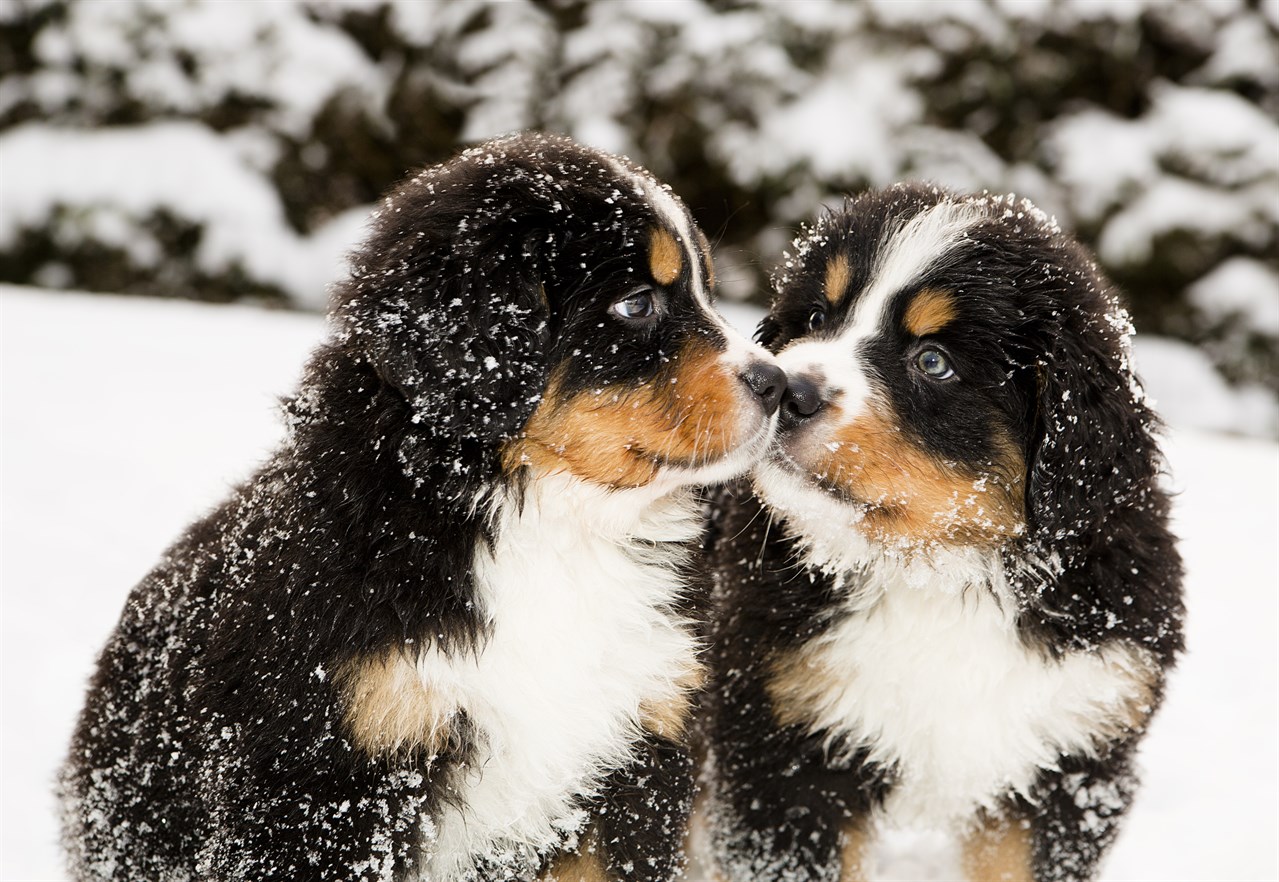Toilet Training a Bernese Mountain Dog: Tips for Success

Toilet training, also known as housebreaking or potty training, is a crucial aspect of raising a Bernese Mountain Dog puppy. While these dogs are known for their gentle and affectionate nature, they can be a bit stubborn when it comes to toilet training. However, with patience, consistency, and positive reinforcement, you can successfully teach your Berner where and when to do their business.
Start Early
Begin toilet training as soon as you bring your Bernese Mountain Dog puppy home, ideally when they are around 8 weeks old. Puppies have a natural instinct to keep their sleeping and eating areas clean, making this age a good starting point.
Establish a Routine
Consistency is key. Set a regular schedule for feeding, playtime, and bathroom breaks. Puppies typically need to go shortly after waking up, after eating or drinking, and after playing. Take them to the designated potty area at these times.
Choose a Designated Potty Area
Select a specific spot in your yard where you want your Berner to do their business. This consistency helps them associate that area with the act of elimination. When you take them there, use a consistent command, such as "Go potty" or "Do your business," to reinforce the behaviour you want.
Supervise Closely
Keep a close eye on your puppy, especially when they are indoors. Look for signs like sniffing, circling, or restlessness, which often indicate they need to go. If you notice these signs, immediately take them to the designated potty area.
Crate Training
Crate training can be a valuable tool in housebreaking. Dogs naturally avoid soiling their sleeping area, so a properly sized crate can help limit accidents. Make sure the crate is not too large; it should be just big enough for your puppy to stand up, turn around, and lie down comfortably.
Positive Reinforcement
When your Bernese Mountain Dog puppy successfully eliminates in the designated area, offer praise, treats, and lots of verbal encouragement. Positive reinforcement helps them associate the desired behaviour with rewards.
Be Patient
Toilet training can be frustrating at times, but it's essential to remain patient. Avoid scolding or punishing your puppy for accidents, as this can create fear and anxiety, making training more challenging.
Clean Accidents Thoroughly
Accidents happen, especially during the early stages of training. When they do, clean the area thoroughly with an enzymatic cleaner designed to eliminate odours. This helps prevent your puppy from returning to the same spot.
Gradual Independence
As your puppy becomes more reliable in their toilet habits, gradually increase their independence. Give them more freedom indoors, but continue to monitor their behaviour and be ready to take them outside when needed.
Consistency Is Key
Consistency throughout the training process is crucial. Stick to the routine, use the same commands, and reward good behaviour consistently. It may take several weeks or even a few months for your Bernese Mountain Dog to become fully reliable in their toilet habits.
Consult a Professional
If you're having significant difficulties with toilet training, consider consulting a professional dog trainer or behaviourist. They can provide tailored advice and solutions to address specific challenges.
Remember that every dog is unique, and the time it takes to successfully toilet train a Bernese Mountain Dog may vary. Be patient, maintain a positive attitude, and celebrate your puppy's progress along the way. With time and dedication, your Berner will become a well-trained and reliable member of your family.
Bernese Mountain Dog puppies for sale
- Find Bernese Mountain Dog puppies for sale in ACT
- Find Bernese Mountain Dog puppies for sale in NSW
- Find Bernese Mountain Dog puppies for sale in NT
- Find Bernese Mountain Dog puppies for sale in QLD
- Find Bernese Mountain Dog puppies for sale in SA
- Find Bernese Mountain Dog puppies for sale in TAS
- Find Bernese Mountain Dog puppies for sale in VIC
- Find Bernese Mountain Dog puppies for sale in WA